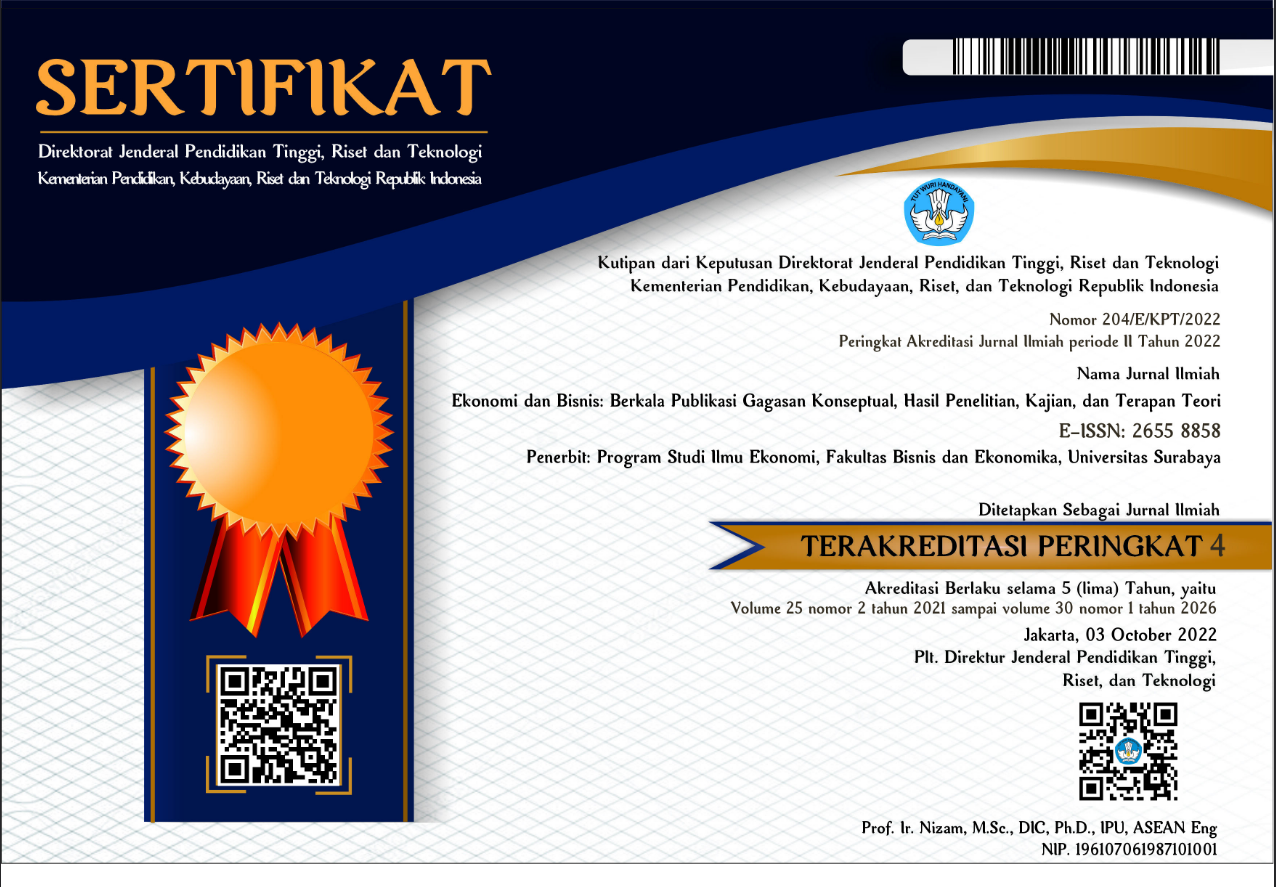PENGARUH FAKTOR – FAKTOR EKONOMI TERHADAP INFLASI DI INDONESIA PASCA-KRISIS KEUANGAN
 Abstract Views:
457 times
Abstract Views:
457 times
 PDF Downloads:
1168 times
PDF Downloads:
1168 times
Abstract
This study aimed to identify the influenceof Interest Rate, Money Supply, and Exchange Rate to inflationin Indonesia after Financial Crisis 2008 with quantitative approach and analyzed using OLS (Ordinary Least Square). Data Methods in this research used time series data in the period 2008:1 until 2015:2. The result of this research indicate that Interest Rate, Money Supply, and Exchange Rate simultaneously effect the inflationin Indonesia after Financial Crisis 2008. Interest Rate has a positive effect 2.755885%, Money Supply has a positive effect 1.28E-06%, and Exchange Rate have a negative effect 0.000841%. Bank Indonesia as an institution that is responsible for determining the inflatin target has a very important role and coordinate with the government in implementing fiscal policy and monetary policy appopriately.
Downloads
References
Ilyas A., 1999, Menuju Kestabilan Nilai Rupiah Melalui Independensi, Akuntabilitas dan Transparansi. Makalah Diskusi Panel Kemandirian Bank Indonesia Pasca UU NO. 23 Tahun 1999, Jakarta.
Nopirin, 1998, Ekonomi Moneter II, BPFE, Yogyakarta.
Nugroho W.P., dan Maruto U. B., 2012, Analisis Faktor – Faktor yang Mempengaruhi Inflasidi Indonesia Periode 2000.1 – 2011.4, Journal Of Accounting Vol.1 No.1, Tahun 2012, Semarang.
Sutawijaya A., 2012, Pengaruh Faktor – Faktor Ekonomi Terhadap Inflasidi Indonesia, Jurnal Organisasi dan Manajemen, Vol.8 No.2 September 2012, Fakultas Ekonomi Universitas Terbuka, Jakarta.
Anonim, https://rutacs.wordpress.com/2008/10/30/dampak-krisis-keuangan-global-tahun-2008-terhadap-ekonomi-indonesia/, diakses pada 19 Agustus 2015.
Bank Indonesia, www.bi.go.id diakses 23 Agustus 2015.

 DOI:
DOI:















